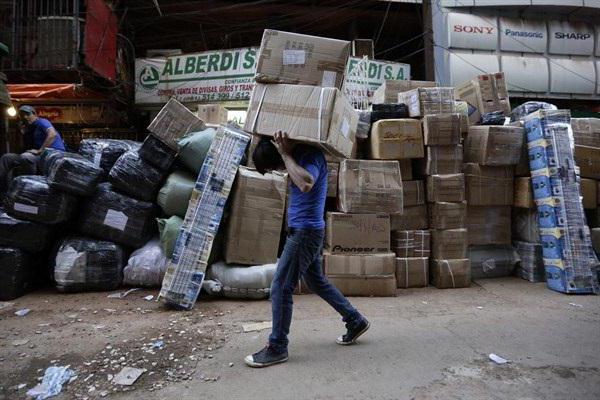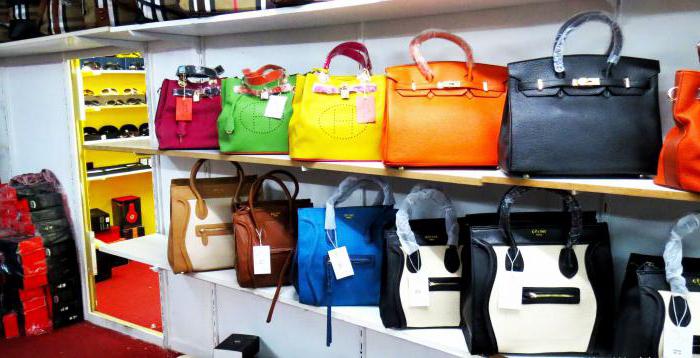During the inspection of a trading company by various regulatory authorities (inspection, sanitary service, police), various violations of trade rules can be detected. In this case, the entrepreneur himself, as well as the seller or the organization as a whole, can be held liable. Sanctions are sometimes fined, but criminal liability is not uncommon.
Consider all types of liability for violation of trade rules.

Administrative responsibility
Administrative ones include antisocial, unlawful violations, which have the following features:
- factual basis (i.e. administrative misconduct itself), not harmful or malicious enough to fall within the definition of a crime;
- specific types of penalties, that is, administrative measures;
- responsibility for this type of offense leads to the resulting administrative relationship, where, on the one hand, there is an accused of an offense, and on the other, a representative of the state who has the authority to bring the person to administrative responsibility;
- the procedure for considering the case in this case will be extrajudicial (according to article 194 of the Code of Administrative Offenses);
- relatively small time spent on production and on bringing the guilty party to administrative responsibility;
- lack of criminal record of the offender.

Types of Administrative Measures
Penalties in this case may be imposed in the form of a fine, correctional labor, warning, deprivation of special rights, forfeited seizure or complete confiscation of an object (if it was an object or instrument of an offense), administrative expulsion from the country (if the perpetrator has foreign citizenship )
Administrative Code for violation of trade rules provides for certain liability measures.
Compared to crimes, administrative offenses have a less harmful effect on the legal field, and therefore penalties are not so severe. Often misconduct of this type does not entail financial harm, which means that the means of civil law enforcement will not be chosen as punishment. The term for imposing an administrative measure is no later than 2 months from the date of the offense. If it is of a prolonged nature, then no later than 2 months. from the moment of discovery. By the way, according to the Code of Administrative Offenses under article 14.34, violation of the rules of trade in the retail sector involves the imposition of a fine.
What are the administrative offenses in trade?
- Neglect of trade rules. They take place in trading enterprises of various forms of ownership or IP. For offenses of this type, the culprit is fined 3-25 minimum wages (minimum wage).
- Illegal trade in goods (or other items) prohibited or restricted in free sale. The penalty for this will be a fine of 3-100 minimum wages, with or without confiscation.
- Violation of sanitary rules of trade or trade in products of inadequate quality. A fine of 3-25 minimum wages.
- Trade in goods without conformity marks or certificates. A warning will follow or a fine of 5-100 minimum wages will be imposed (confiscation is also possible).
- Trade in goods without documents. A fine of 50-100 minimum wages is imposed.
- Violation of state price control. A fine of 50-100 minimum wages.
- Sale of excisable goods without marking of an established pattern. A fine of 10-100 minimum wages with the confiscation of this product.
- The sale of alcohol in violation of the rules of trade.A fine of 100-200 minimum wages.
- Deception of buyers in small sizes. For example, a deliberate lie about the consumer properties of products, weighting, shortcomings, and others. A fine of 1-30 minimum wages.

For violation of the rules of trade, the Code of Administrative Offenses of the Russian Federation provides for the possibility of being responsible for their actions.
Consumer rights must be respected
The powers to protect these rights belong to various state bodies, including the Ministry of Antimonopoly Policy and its territorial divisions. It protects both the rights of each consumer individually and their indefinite circle. The antimonopoly authority takes action by examining the claims of consumers even if the culprit voluntarily did not satisfy their legitimate claims. After all, the main principle of administrative responsibility for violation of trade rules is the protection of consumer rights.
What is civil liability?
This type of liability is imposed in the form of sanctions, civil obligations. The main function of this measure is compensation, restoration of violation of property rights of buyers. There are three types of sanctions: payment of forfeit, damages and compensation for non-pecuniary damage. The offender, as a rule, is the organization, seller, manufacturer or contractor.

Criminal liability for trade offenses
Criminal liability is the most severe type of liability for violations of trade rules. The Criminal Code of the Russian Federation has several articles on the protection of the rights of buyers. In particular, they relate to the following cases:
- False advertising (article 182 of the Criminal Code). The following types of liability are imposed for this: fine (200-500 minimum wage or in the amount of the convicted person’s income for a period of two to 5 years), compulsory labor (from 180 to 240 hours), arrest (term: 3-6 months) or imprisonment for up to two years.
- Leading to mass poisoning or illness of people through negligence, violation of the sanitary-epidemic rules. The punishment for this will be the following: a fine (100-200 minimum wages or in the amount of the convict’s salary for a period of one to two months), deprivation of the right to be assigned to certain posts, conduct activities (up to 3 years), or restriction of liberty (up to 3 years) or imprisonment (up to two years). If this violation was fatal, then imprisonment - up to five years.
- Sales of goods, their production, storage or production for the purpose of marketing (as well as the provision of services, works) that do not meet safety requirements for the life or health of customers. This also includes the use or issuance of a document that falsely certifies that these goods comply with safety requirements. The punishment for this offense will be a fine (500-700 minimum wage, income of the convicted person from 5 to 7 months) or imprisonment, restriction of liberty for up to two years. If this act was not committed for the first time, by an organized group of persons or affected the interests and safety of children under the age of six, or led to death, serious harm to health - a fine (700-1000 minimum wage), imprisonment (up to six years with confiscation of property) or restriction of freedom (up to three years). If all of the above, through negligence, led to the death of two or more people, imprisonment for a term of four to ten years will follow.
- Intentional consumer fraud: lies about consumer properties, weighting, shortcomings. If the size of this crime is significant, it is punishable by a fine (100-200 minimum wages), compulsory work (from 180 to 240 hours); correctional labor (1-2 years). If there was a particularly large crime or conspiracy of a group of persons, or the guilty person was previously convicted of such an offense, then the punishment will be imprisonment for up to two years (with deprivation of the right to be registered in any position for up to three years).

International Trade Violation
The UN Commission, namely its UNCITRAL unit (responsible for the rights in the field of international trade), formed the rules that control this area. Thus, the UN Convention, which contains information on the procedure for conducting treaties of international trade relations, is recognized as a document that is valid in relation to 56 countries of the world. It describes the procedures for concluding contracts, their main provisions, the obligations assumed by the buyer and seller, the objects of sale and sale, in respect of which the convention does not apply.
Incoterms
In the field of international trade relations, voluminous work is being done to harmonize trade customs and bring them to common standards for all. The main role is assigned to the International Chamber of Commerce. According to its definition, a customary rule is a generally recognized rule that has been formed in the practice of trade between countries on the basis of unified relations between counterparties. If you are acting in the field of international trade relations, you need to pay attention to the ICC document ("International Rules for the Interpretation of Terms 2010"). Otherwise, it is called Incoterms. Its study will allow you to comply with the rules by which the contract procedures are performed in the international economic space.
Key recommendations
In order not to violate the rules of trade, it is necessary to comply with the law and requirements of various regulatory services - fire, consumer, sanitary and epidemiological and others. The main principle of trade relations is a contract entered into by the seller and the consumer. The main document confirming the transaction here is a cash receipt (or other paper with similar functions). Issuing a check to a customer is the direct responsibility of the seller. The check must contain information about the data of the legal entity, its TIN, cash register number, transaction, date and time of purchase, price of the goods. It should also feature a company print. The check is canceled at the time of sale of the goods, which means that the seller must stamp it or make a break. As mentioned, liability for violation of retail rules is regulated by Art. 14.34 Code of Administrative Offenses.
Finally
It is important to attach importance to the quality control of the goods, the design of all the proper documentation for them, and the correct setting of prices. And, of course, in no case should the consumer be misled regarding the quality, durability, shelf life or other characteristics of the product.